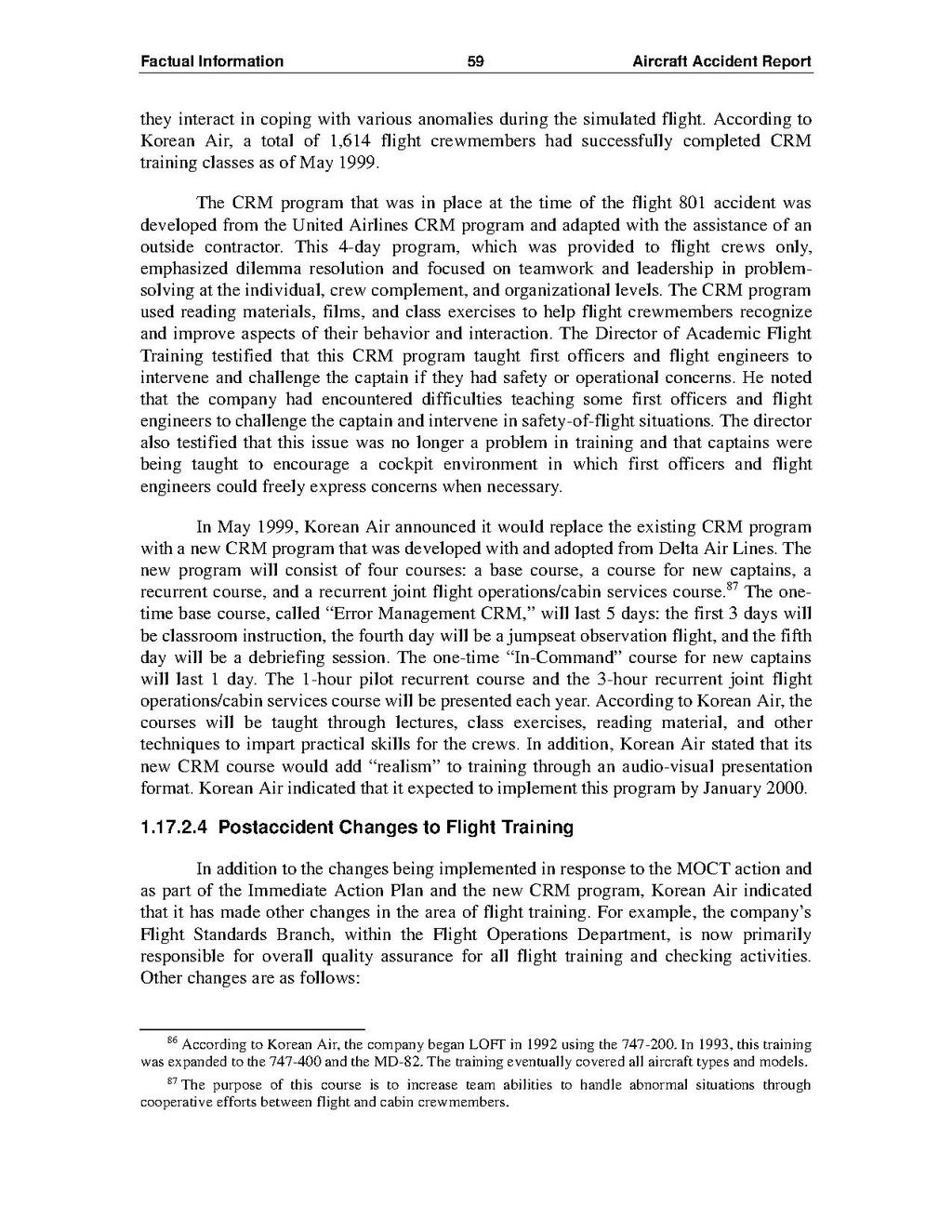they interact in coping with various anomalies during the simulated flight. According to Korean Air, a total of 1,614 flight crewmembers had successfully completed CRM training classes as of May 1999.
The CRM program that was in place at the time of the flight 801 accident was developed from the United Airlines CRM program and adapted with the assistance of an outside contractor. This 4-day program, which was provided to flight crews only, emphasized dilemma resolution and focused on teamwork and leadership in problemsolving at the individual, crew complement, and organizational levels. The CRM program used reading materials, films, and class exercises to help flight crewmembers recognize and improve aspects of their behavior and interaction. The Director of Academic Flight Training testified that this CRM program taught first officers and flight engineers to intervene and challenge the captain if they had safety or operational concerns. He noted that the company had encountered difficulties teaching some first officers and flight engineers to challenge the captain and intervene in safety-of-flight situations. The director also testified that this issue was no longer a problem in training and that captains were being taught to encourage a cockpit environment in which first officers and flight engineers could freely express concerns when necessary.
In May 1999, Korean Air announced it would replace the existing CRM program with a new CRM program that was developed with and adopted from Delta Air Lines. The new program will consist of four courses: a base course, a course for new captains, a recurrent course, and a recurrent joint flight operations/cabin services course.[1] The onetime base course, called "Error Management CRM," will last 5 days: the first 3 days will be classroom instruction, the fourth day will be a jumpseat observation flight, and the fifth day will be a debriefing session. The one-time "In-Command" course for new captains will last 1 day. The 1-hour pilot recurrent course and the 3-hour recurrent joint flight operations/cabin services course will be presented each year. According to Korean Air, the courses will be taught through lectures, class exercises, reading material, and other techniques to impart practical skills for the crews. In addition, Korean Air stated that its new CRM course would add "realism" to training through an audio-visual presentation format. Korean Air indicated that it expected to implement this program by January 2000.
1.17.2.4 Postaccident Changes to Flight Training
In addition to the changes being implemented in response to the MOCT action and as part of the Immediate Action Plan and the new CRM program, Korean Air indicated that it has made other changes in the area of flight training. For example, the company's Flight Standards Branch, within the Flight Operations Department, is now primarily responsible for overall quality assurance for all flight training and checking activities. Other changes are as follows:
- ↑ The purpose of this course is to increase team abilities to handle abnormal situations through cooperative efforts between flight and cabin crewmembers.
